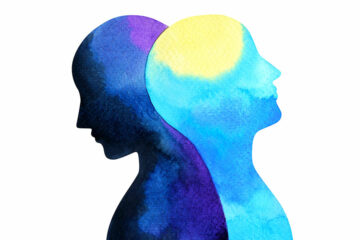I cry a lot.
This morning on the bus, when this beyond-cute baby couldn’t stop smiling at me. During a coaching session last weekend, when I was confronted by a particularly uncomfortable truth. This summer, when my comedian of a sister made me laugh so hard I thought I’d break a rib. Without fail, every time someone sends me flowers for no reason at all.
I haven’t always been a crier. Frankly, I spent a good few decades of my life pushing my emotions as far down inside me as they could go. For fear they’d be seen as weakness. For fear they’d get in the way of logic. For fear they’d expose me (god forbid) as emotional.
Because emotional people make bad decisions, right? Because emotions are bad for business, right?
Intellectually shallow garbage, to be sure.
Decision-making, in fact, is mostly emotional not logical, as much as we may believe or wish otherwise. There’s tons of research and evidence to support this, both in neuroscience and psychology. Antonio Damasio and Fyodor Dostoevsky are 2 of my favorite rabbit holes here, respectively. (Damasio, for example, showed that people with damage to the part of the brain that processes emotions have difficulty making even very simple decisions.)
If emotion is the fulcrum by which decisions are made, would we not logically conclude that those most in touch with and understanding of emotion are also those more likely to make better, more pragmatic decisions over time?
Emotion, moreover, is a fulcrum (arguably the fulcrum) of today’s developed economy. Think about it. How many of us would argue that economics is a truer reflection of reality than behavioral economics, for example?
We collectively spend trillions of dollars every year on stuff. And those purchase decisions (at least in a developed economy) are largely emotional in nature: that new home in that specific zip code, that new shirt from that specific brand. Is it any wonder that the 100s of billions of dollars in annual advertising spend are focused on the top and not the bottom of Maslow’s pyramid?
Think about the iPhone’s success or the rise of influencer marketing. Or pyramid schemes or Elizabeth Holmes. The fulcrum that accounts for each? Emotion.
Think about how a company is valued. The methods and processes and formulas and so on, all terribly logical and rational to be sure. But what it really comes down to? Predictions about people, and predictions about the future. Both of which are arguably as emotional as it gets. (Is it any wonder that only 2% of venture funding goes to women-led startups, with that in mind?)
A decade plus into my career and I’ve (finally) learned to embrace emotion.
Because, to quote a girl crush of mine, Martha Nussbaum, “emotions are not just the fuel that powers the psychological mechanism of a reasoning creature, they are parts, highly complex and messy parts, of this creature’s reasoning itself.”
And because logic tells me that emotion can make for better decisions, and better business.



0 Comments